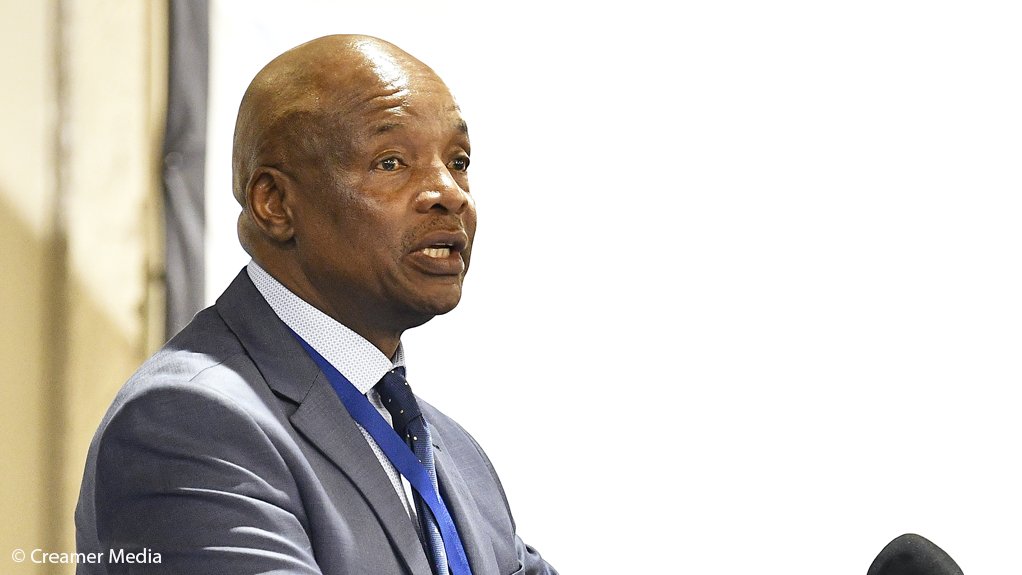Amid a return of the load-shedding spectre, Business Unity South Africa (Busa) has called for the urgent finalisation of a “least-cost and least-regret” Integrated Resource (IRP), which it describes as the first step towards the stabilisation of the country’s electricity sector.
Cabinet is expected to consider the IRP at its October 16 meeting.
State-owned electricity producer Eskom published an alert on Wednesday morning, stating that Stage 2, or 2 000 MW, of load-shedding would be implemented, owing to a shortage of capacity.
Eskom last implemented load-shedding in March and during the first quarter of 2019 shed a total of 769 GWh. In March alone, 595 GWh were cut after Eskom resorted to ten days of consecutive load-shedding to balance a system that became constrained, owing primarily to the poor performance of the coal fleet.
The power cuts undermined the economy’s performance during the first half of the year and have been partly blamed by the International Monetary Fund and the World Bank for recent downward revisions to South Africa’s 2019 gross domestic product (GDP) growth forecast. Both institutions have cut their October forecasts to below 1%, from above 1% in April.
In a statement, Busa president Sipho Pityana drew a direct link between the Gazetting of the IRP and load-shedding, arguing that a further delay in approving the plan would “prejudice urgent procurement and investment decisions that are necessary to ensure electricity supply security and the avoidance of further load-shedding”.
“As the first quarter GDP results show, load-shedding significantly damages economic growth. The Gazetting of the IRP needs to be followed by an immediate Ministerial Determination for the procurement of new generation capacity,” Pityana added.
Busa also called for the launching of Bid Window 5 of the Renewable Energy Independent Power Producer Procurement Programme to ensure security of supply over the medium-term and to encourage private sector participation, where such participation can be competitive and maximise the contribution to Eskom and the sector.
It also argued that significant new investment could be unlocked by lifting licence exemptions for small-scale distributed generation up to 10 MW – the exemption currently applies only to projects below 1 MW. “This intervention, which can be comparatively rapidly implemented, will ensure security of supply for critical sectors of the economy and ease pressure on Eskom’s supply.”
Business also appealed for decisive action to restructure Eskom, so as to make it “fit-for purpose”, as well as to ensure it is appropriately capitalised and competitive.
“The restructuring of Eskom needs to be considered in the context of a Gazetted IRP. Busa has consistently argued that the current model of a vertically integrated, state-owned monopoly electricity utility is increasingly out of step with global trends, posing a major risk to South Africa’s fiscal sustainability. A review of Eskom’s capital model, operating structure and tariff regime is therefore of the utmost urgency to ensure that demand can be stimulated, energy output optimised and costs minimised.”
The specific actions identified by Busa for Eskom included:
- The appointment of an Eskom CEO with proven leadership capability, assessed independently of political considerations.
- Reinforcing the board and management with competent and capable members and executives.
- The creation of an appropriate governance and management platform to drive the restructuring of Eskom into three separate entities responsible for generation, transmission and distribution, commencing with the immediate establishment of a transmission system operator subsidiary company, with its own board, to take the first steps in the restructuring and create the momentum for reform.
- Formalising the government support package and conditions thereof, such that Eskom’s financial sustainability is maintained, including optimising the allocation of debt and assumption of liabilities. Funds available to Eskom should be accessed on optimal terms. As such, the Eskom Sustainability Task Team should be mandated to explore the feasibility of lower-cost climate-linked finance for Eskom.
- Putting in place a cost-reflective tariff regime that enables business to flourish and play its appropriate role in driving sustainable, inclusive economic growth.
Finance Minister Tito Mboweni announced R23-billion in yearly support for the utility in his February Budget and subsequently also introduced a Special appropriation Bill to inject a further R26-billion into Eskom in 2019/20, followed by R33-billion in 2020/21.
Public Enterprises Minister Pravin Gordhan is expected to publish a policy paper on Eskom’s restructuring this month, which will also include a proposal for the restructuring of Eskom’s R450-billion in debt, which the utility is unable to service.
“We believe that the stabilisation of Eskom in a restructured industry is a long-term proposition where business can be of significant assistance as a partner,” Pityana said, adding that the business community remained committed to engaging with government and other stakeholders with a view to developing a secure, stable and cost-effective energy supply for the country.
EMAIL THIS ARTICLE SAVE THIS ARTICLE ARTICLE ENQUIRY
To subscribe email subscriptions@creamermedia.co.za or click here
To advertise email advertising@creamermedia.co.za or click here











